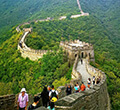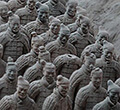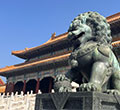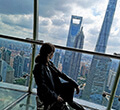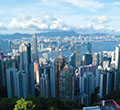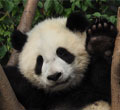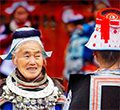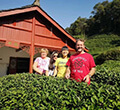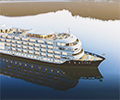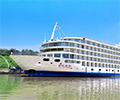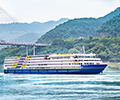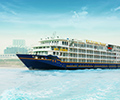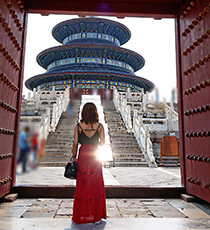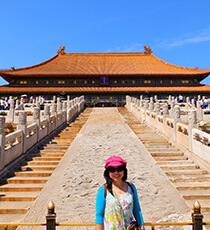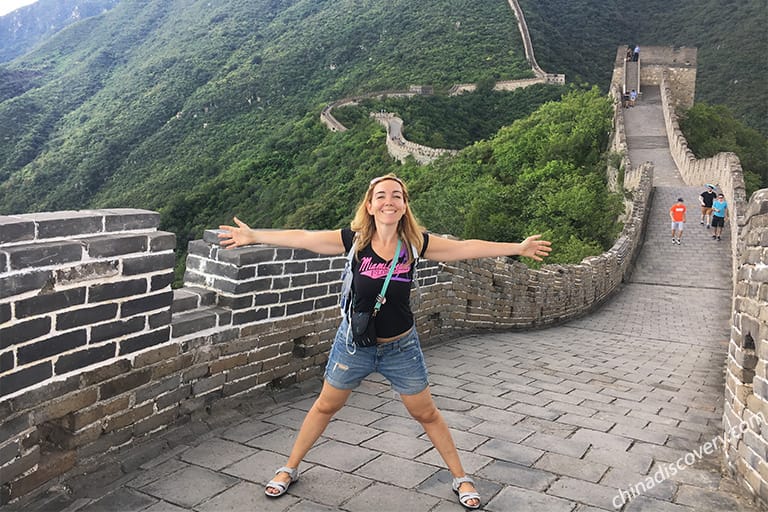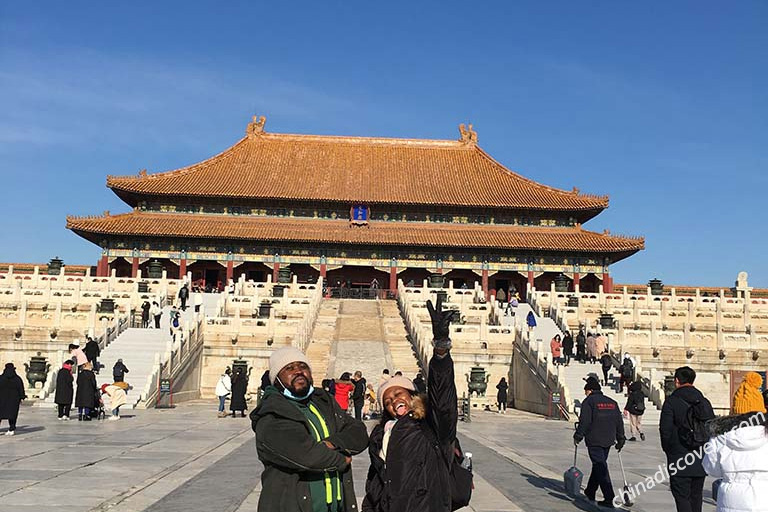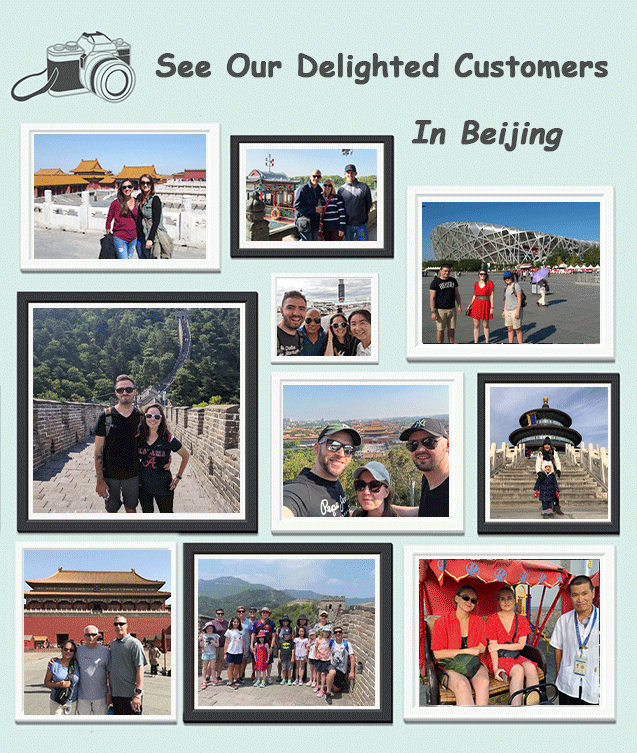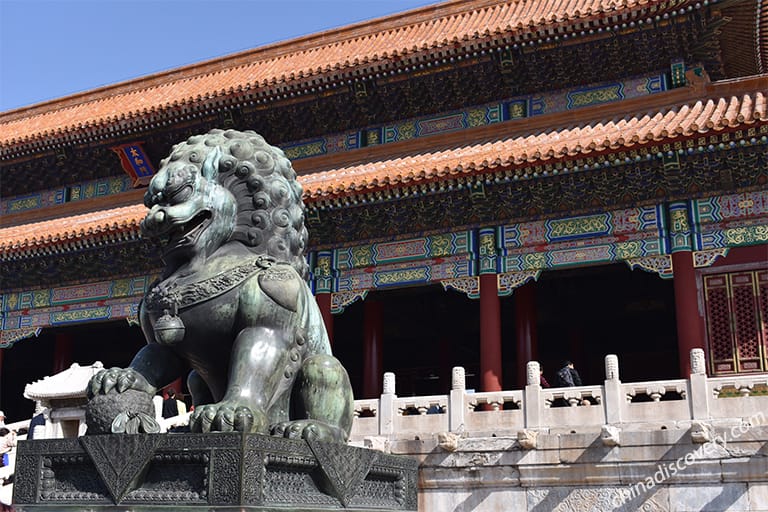Beijing PM 2.5 Data of Today and History | How to Protect Yourself
PM stands for particulate matter and PM 2.5 Air refers to pollution consisting of particles with diameters that are generally 2.5 micrometers and smaller. The fine particles can be inhaled into deep branches of human’s lung. Some particles, like dust, dirt, soot, and smoke, are large enough to be seen with your naked eye, but the PM 2.5 can only be detected by microscope. As one of the major analyzed factors for Air Quality, it is measured as the main index to define weather the air quality is good or bad. Beijing, the capital of China, used to be infamous for its high PM 2.5. To help you have a clearer understanding of its current PM 2.5 trend and its change, we analyzed over 10 academic papers related to Beijing air quality in the latest 5 years.

Our Customers from USA Visiting Forbidden City (June, 2018)
What to Learn from Beijing PM 2.5 data

Monthly Average AQI in Beijing from 2015 to 2018
According to the data from 2015 to 2018, September is the month with best air quality and April and May is the second best months. The average monthly AQI Keeps going down since 2015 and the highest monthly average AQI in 2018 occurs in June. In and pie chart, the most intense PM 2.5 area when polluted days occur might be the transportation junctions such as the bus stations, airports, traffic main arteries, highways, construction sites, etc. These places are not suggested to go unless it is necessary for the sake of your health. The coal burning for heating system used to contribute a lot to the PM 2.5 in Beijing , especially in winter. Since it has become one of the minor causes, the seasonal air quality might be more stable since 2018, comparing with the sharp rising in winter before 2016 Namely, Travelling in Beijing in winter is much less affected by the hazy smog.
How to Portect Yourself from Unhealthy Air when travelling in Beijing
When the air polluted days do occur unluckily during your travelling in Beijing, the following tips might be useful for protecting yourself in advance.
Monitor the AQI in your area in advance: If the AQI is below 100 (Green or Yellow), it is ok to do the outdoor activities such as hiking on the Great Wall; If the AQI is over 100 but under 150, going to visit the opening space such as Tiananmen Square and The Temple of Heaven within certain hours except for the evening, is also ok for most of the insensitive groups; If the AQI is over 150 which rarely happened since 2017, you'd better stay at home or do some indoor activities such as exploring the local cuisine in the restaurant of Beijing.
Bring a Mask: The only mask recommended is the N95- or N100-rated mask, which can prevent over 95% PM 2.5 particles from being inhaled by you. You can buy them at a pharmacy or hardware store in the case of the terrible air quality.
Walk, don't run: When you have to go out and face the bad air outside, make sure that you wear a proper mask and you will not rush but slow down your pace to breathe less impure air.
Recommended Mask to Block PM 2.5
There are numerous mask brands and types over the market. For air protection and the health of our customers, we are in no way affiliated to any of the mask producers, but here we have our sincere suggestion on choosing a good mask: The most common and affordable mask are known as the 3M N95 masks( "N95" stands for the mask is able to filter out at least 95% of airborne particles, 29 RMB for 5 pcs), and it is good enough for most of the PM 2.5, but you can also purchase N99 for sensitive groups, which can filter over the 99% of airborne particles. It is foldable and you can always packing one with you for your trip to China. And if you forgot to take one, you can also get this mask from any convinience store in China such as 7-Eleven.

3M N95 Mask
Beijing PM 2.5 Historical Data
According to the historical PM 2.5 data in Beijing, the local emissions accounted for 2/3, mobile sources accounted for 45% of local emissions, and regional transmission accounted for 1/3, but the contribution of regional transmission on heavy pollution days was greater than 50%.
The results demonstrate that local emissions account for two thirds of the main sources of PM2.5 in Beijing, and regional transmission accounts for one third. Regional transmission contributes about 20 micrograms/cubic meters to the average PM2.5 concentration of 58 micrograms/cubic meters in 2017. With the increase of pollution level, the contribution of regional transmission increases, and the provincial transmission accounts for 55% - 75% of the polluted days. Depending on the characteristics of PM2.5 source in Beijing, the mobile source accounts for 45% of the total.

Beijing PM 2.5 Emission Sources
The main conclusions of this study show that local emissions account for two-thirds of the main sources of PM2.5 in Beijing throughout the year 2017. At this stage, mobile sources, dust sources, industrial sources, household sources and coal-fired sources account for 45%, 16%, 12%, 12% and 3%, respectively. Agriculture and natural sources account for about 12%; diesel vehicles driving in Beijing account for the largest contribution of mobile sources, construction and coal-fired sources are equal. The use of living solvents in household sources accounts for about 40%. Regional transmission accounted for 34% - 50% in moderately polluted days (PM2.5 average concentration between 115 - 150 micrograms / cubic meters), and regional transmission in heavily polluted days (PM2.5 average concentration > 150 micrograms / cubic meters) accounted for 55% - 75%.
Best Time to Visit Beijing
Generally speaking, Beijing is the capital where you can travel whenever you want. Every season brings you different features of its enduring culture and history. The best time to visit Beijing is from late September to the early November, except for the National Holiday (Oct. 1-7), and Winter Tour in Beijing is also getting popular for now due to the AQI improvement. Though the best travelling timing is influenced by multiple factors for every individual, detailed Beijing Seasonal tips are provided for your reference. >>Learn More about the Best Time to Visit Beijing
How to Plan Your Travel in Beijing
To explore Beijing's highlights, such as the Forbidden City, the Great Wall (with Mutianyu as the top recommendation), the Temple of Heaven, the Summer Palace, and the Beijing Hutongs - plan for about 4 days, including arrival and departure.
☛ 4 Days Classic Beijing Tour Package
☛ 3 Days Beijing Essential Highlights Tour
If you have extra days, consider hiking the scenic Jinshanling Great Wall, enjoying the stunning night views of Simatai Great Wall, or visiting other sections like Huanghuacheng, Gubeikou, and Juyongguan.
☛ 4 Days Beijing Essence Tour with Simatai Great Wall Night Sightseeing
☛ 4 Days Classic Beijing Tour with Jinshanling Great Wall Hiking
Families with children should not miss Universal Beijing Resort, while museum enthusiasts should visit the National Museum of China, home to the nation's most valuable treasures.
☛ 5 Days Beijing Family-friendly Tour with Universal Studios Fun
☛ 5 Days In-depth Beijing Tour with History and Culture Discovery
As a major transportation hub, Beijing offers easy access to other top destinations in China by flight or train, such as Xi'an, Shanghai, Guilin, Chengdu, and Tibet. China Discovery provides a variety of tour packages from Beijing, or we can customize an itinerary to suit your preferences.
Recommended Beijing Tours with Other Top Cities in China:
☛ 6 Days Classic Beijing Xian High-speed Train Tour
☛ 8 Days Best of China Tour (Beijing - Xian - Shanghai)
☛ 10 Days Classic China Tour from Beijing (Beijing - Xian - Guilin - Shanghai)
We have helped many global travelers enjoy their memorable wonderful trips to Beijing for the past few years. Among them, a special team of over 50 VIPKID teachers from North America traveled with us to see their dear studends in China with amazing experience in Beijing and shared us their special travel story! Travel with China Discovery to create your great China trip memories!
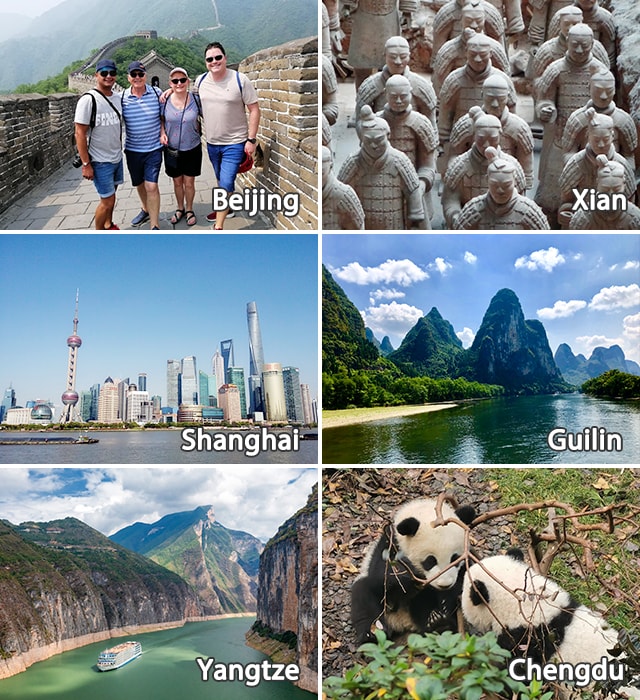 Top China Recommended Destinations
Top China Recommended Destinations
Keep Reading about Beijing Weather
- Best Time to Visit Beijing
- Beijing Spring Travel
- Beijing Summer Travel
- Beijing Autumn Travel
- Beijing Winter Travel
- Best Time to Visit Great Wall
- Beijing Weather in January
- Beijing Weather in February
- Beijing Weather in Marcch
- Beijing Weather in April
- Beijing Weather in May
- Beijing Weather in June
- Beijing Weather in July
- Beijing Weather in August
- Beijing Weather in September
- Beijing Weather in October
- Beijing Weather in November
- Beijing Weather in December
- Beijing Temperature
- Beijing Air Quality
Top Beijing Tours & Travel Guide
- Popular Beijing Tours
- Great Wall Hiking Tours
- Beijing Visa Free Tours
- Beijing Layover Tours
- Tpo 6 Beijing Vacations
- Beijing Family Tours
- Beijing Travel Guide
- Beijing Travel Articles
- Great Wall Trip Planning Guide
- How to Plan a Beijing Trip
- Things to do in Beijing
- Top Experiences Recommended by LP
- Featured Activities in Beijing
- Get to & around Beijing
- Weather & Seasons in Beijing
- Beijing Maps
- Beijing 144/24 Hour Visa Free
- Recommended Hotels in Beijing
- Beijing Photo Gallery
- Top Beijing Food and Snacks
- Beijing Shopping
- Beijing Nightlife
- Beijing FAQs & Tips
- Popular Beijing Tours
- Great Wall Hiking Tours
- Beijing Visa Free Tours
- Beijing Layover Tours
- Tpo 6 Beijing Vacations
- Beijing Family Tours
- Beijing Travel Guide
- Beijing Travel Articles
- Great Wall Trip Planning Guide
- How to Plan a Beijing Trip
- Things to do in Beijing
- Top Experiences Recommended by LP
- Featured Activities in Beijing
- Get to & around Beijing
- Weather & Seasons in Beijing
- Beijing Maps
- Beijing 144/24 Hour Visa Free
- Recommended Hotels in Beijing
- Beijing Photo Gallery
- Top Beijing Food and Snacks
- Beijing Shopping
- Beijing Nightlife
- Beijing FAQs & Tips
Recommended Beijing Tours
Top 3 Beijing tours chosen by most customers to explore Beijing in the best way. Check the detailed itinerary, or tailor your own trip now with us.
Start planning your tailor-made holiday to China by contacting one of our specialists. Once inquired, you’ll get a response within 0.5~23.5 hours.
Customize a TripHave a question? Get answers from our travel experts or guests
- Your Question:
- Your Name:
- Your Email:
- Submit
